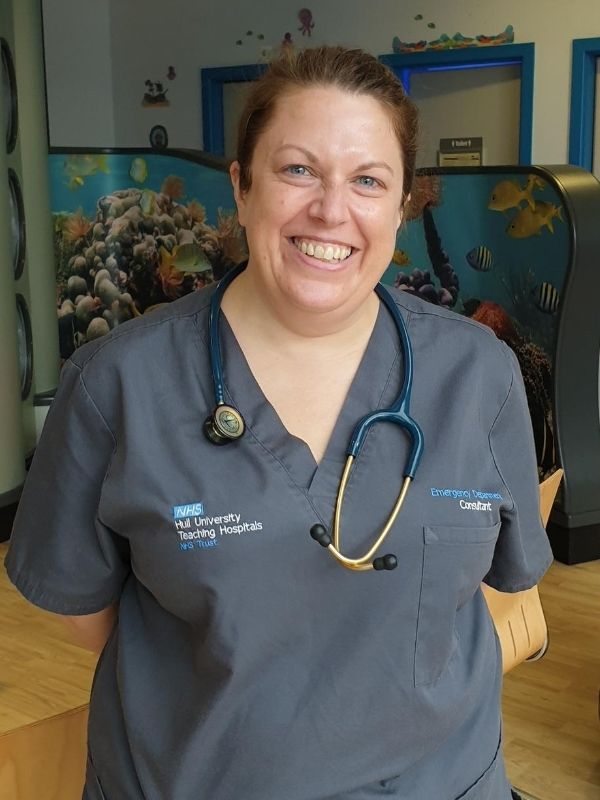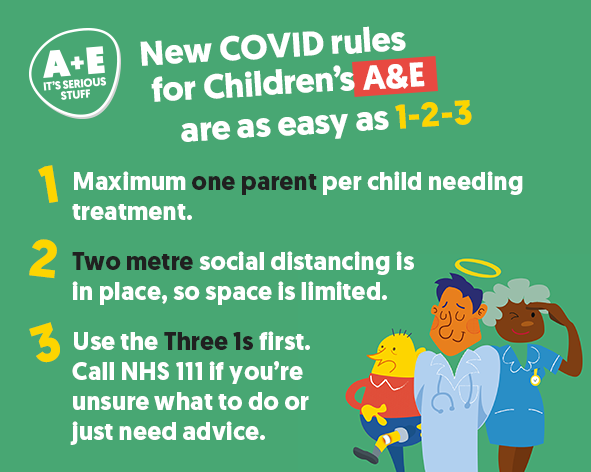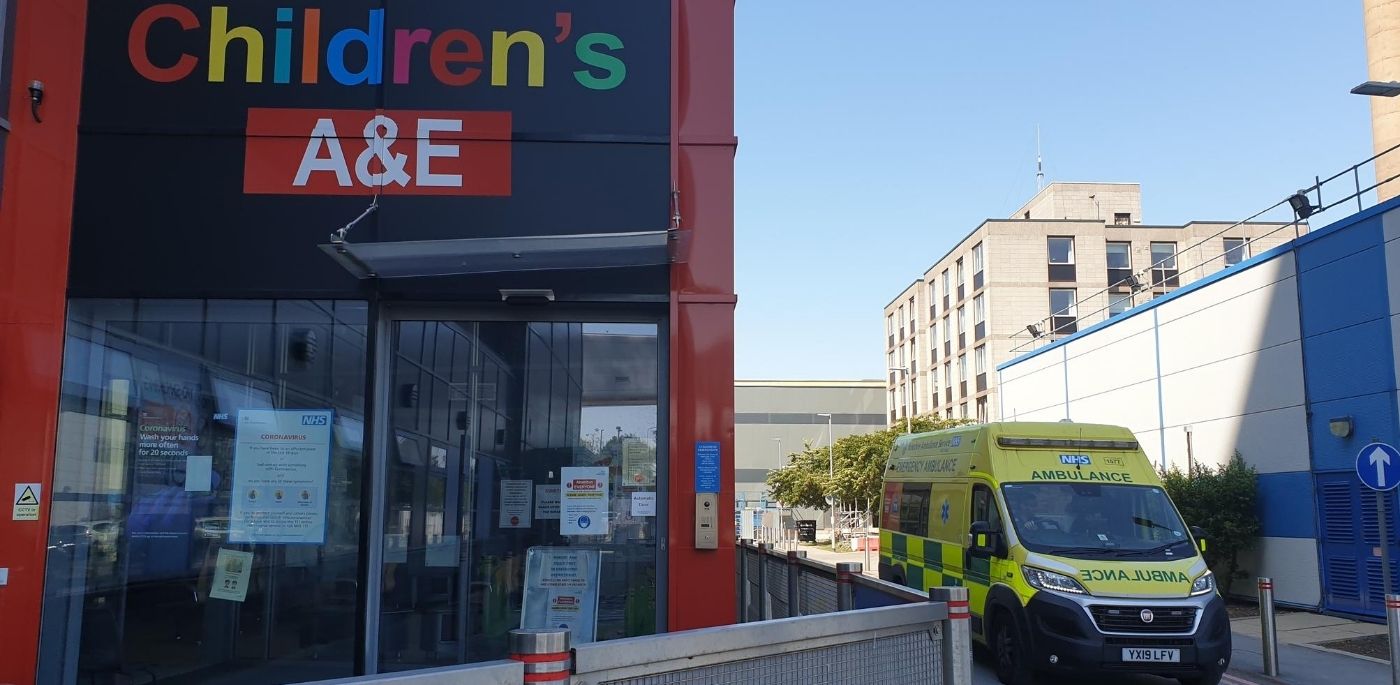As national lockdown restrictions look set to ease, a hospital doctor is appealing for parents to show the same prudent use of health services as they did during the Covid pandemic.
Dr Liz Herrieven, consultant in paediatric emergency medicine, says that as life begins to return to ‘normal’, so does the number of people using the Emergency Department (ED) for non-urgent or routine healthcare.

Dr Liz Herrieven, consultant in paediatric emergency medicine
“Parents did so well coping with minor injuries and illnesses during the first lockdown. People were worried about the threat that Covid posed, they listened to our advice, and many families were able to manage their healthcare needs without having to come to hospital.
“What we’re finding now is that ED attendances are on the rise again, and we’re seeing many more parents and children presenting with basic health problems, such as ingrowing toenails or scuffs and scrapes, which could just as easily be managed at home or with the help and advice of a GP.”
Dr Herrieven says attending A&E when it’s not an emergency has knock-on effects:
“A busy department means children will be waiting longer to be seen, and unnecessary use of ED could potentially divert staff away from children whose needs are more urgent or potentially life threatening.
“Bringing your child into a hospital where we are still treating patients with Covid-19 also potentially puts you and your child at risk of catching the virus. Where you can, it’s a much better idea to stay at home and call 111 for advice on what to do next, and if you need to come to hospital, the 111 team will be sure to tell you.”
NHS111 is open 24hrs a day, 7 days a week, every day of the year. Call handlers can offer general advice, arrange for a medical professional to call you back, or refer you to local sources of care and treatment including pharmacies, out of hours GP services or urgent treatment centres.

Should a hospital visit be needed, the NHS111 team is currently allocating times to attend A&E as part of a national pilot. Please note that due to the unpredictable nature of emergency care, they indicate the time you should arrive at hospital, not necessarily the time you will be seen. Patients will still be seen in order of clinical priority, and further waits should be expected during peak hours or where serious cases are being prioritised.
Dr Herrieven continues:
“Parents have shown over the past 12 months that they can get by using health services closer to home, and we’d really like to ask those people to stick at it, to use the full range of NHS services available, and help us keep our time free for the children who really need us most.”

